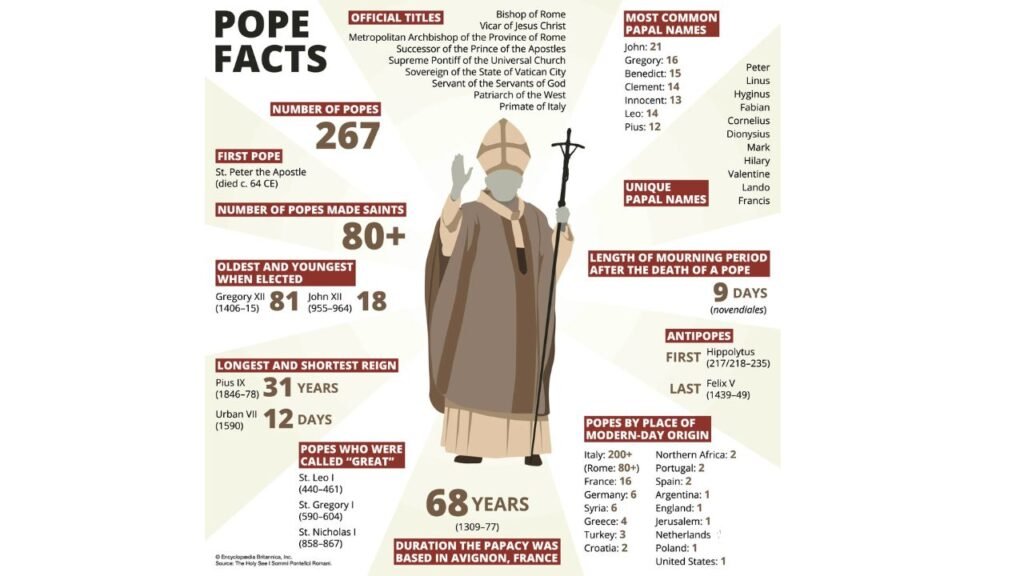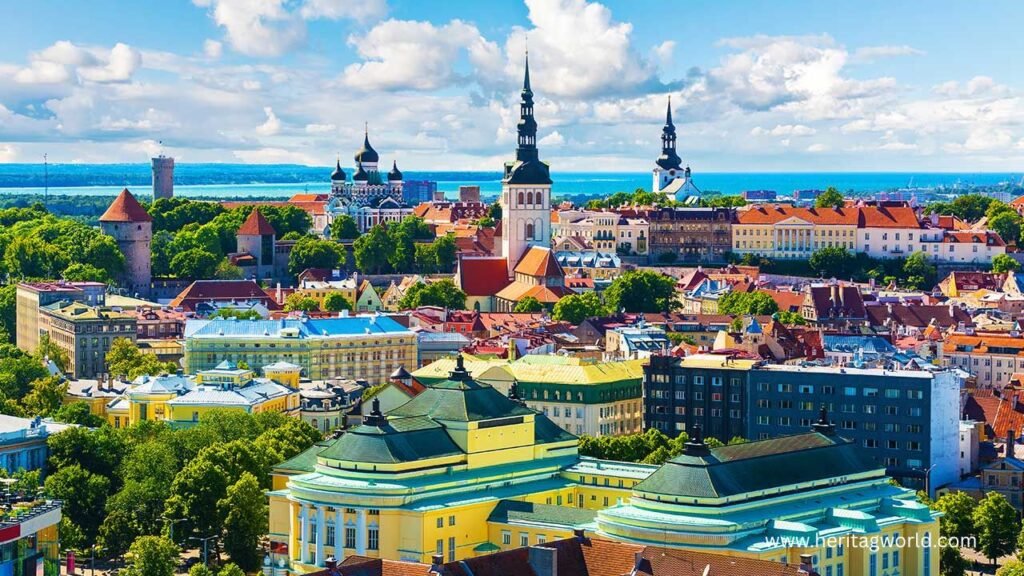The Pope is one of the most important leaders in the world, and his job is a mix of religion, leadership, guidance, and responsibility. But who exactly is the Pope, and What does the Pope do? To understand this better, let’s take a closer look at the life and work of the Pope, with some personal reflections to make it easy and interesting.
Who Is the Pope?
The Pope is the leader of the Roman Catholic Church, which is the largest Christian Church in the world. Catholics believe that the Pope is the successor of Saint Peter, who was one of Jesus Christ’s closest followers. This makes the Pope not just a regular religious leader, but a spiritual father to over one billion Catholics around the globe.
He also serves as the head of Vatican City, the world’s smallest country, which is located inside the city of Rome, Italy. So, the Pope is both a religious leader and a head of state a very rare combination!
When I first learned about the Pope, I imagined someone sitting on a big golden throne and giving orders. But the more I read, the more I realized how complex and demanding his job truly is.
leads the central government of the Roman Catholic Church.
Duties of the Pope

The Pope’s work is a combination of religious, political, and moral responsibilities. Let’s break down his major duties in simple terms:
1. Religious Leader
This is the Pope’s main role. He leads prayers, gives blessings, and performs religious ceremonies, especially at important times like Christmas and Easter. He teaches people about the Catholic faith and helps guide their spiritual journey.
He also writes letters called encyclicals, which explain the Church’s position on big topics like peace, the environment, and poverty. These writings help Catholics understand what the Church believes and how they should live.
For me, the Pope feels like a teacher who guides his huge classroom of students spread across the world. He’s like a lighthouse, giving direction to ships on a dark sea.
2. Head of the Catholic Church
The Pope appoints bishops and cardinals, who help him lead the Church in different parts of the world. He makes sure that Church rules are followed, and he also works on resolving issues or conflicts within the Church.
He also organizes big meetings, such as Synods, where Church leaders gather to discuss important topics like family, youth, or changes in society.
It reminds me of how the principal in our school works making big decisions, guiding the teachers, and setting a good example for students.
3. Head of State of Vatican City
Even though it is tiny, Vatican City is a real country with its own government, police, and post office. As head of state, the Pope meets with presidents, prime ministers, and other world leaders. He talks about world peace, human rights, and justice.
For example, Pope Francis has met with leaders from different religions and countries to promote peace and unity. His message is often about love, forgiveness, and care for the poor.
Once, I saw a photo of the Pope washing the feet of refugees from different countries. That image really touched me. It showed that even though he is so powerful, he believes in serving others.
4. Moral Voice of the World
The Pope speaks out on big moral issues. He talks about the importance of helping the poor, protecting the environment, caring for refugees, and being kind to others. He is often called the “conscience of the world.”
In school, we learn about ethics and values, but when the Pope talks about these, it feels powerful. It’s like hearing a grandfather who really cares about everyone, giving advice to the whole world.
A Tough Job: Why Pope Benedict XVI Resigned
In 2013, something surprising happened. Pope Benedict XVI resigned, something that hadn’t happened in over 600 years. He said he no longer had the strength physically and mentally to continue the role. He felt that the Church needed someone younger and more energetic.
This shows how demanding the job of the Pope really is. It’s not just about wearing white robes or waving from balconies. It involves deep thinking, constant travel, making tough decisions, and being a symbol of hope to millions. His resignation taught the world an important lesson even great leaders need rest and should be honest about their limits.
Conclusion
Today, Pope Francis is the current Pope, and he is known for his humility, simplicity, and concern for the poor and the environment. He tries to bring people of different faiths together and spreads a message of love and understanding.
So, what does the Pope do? He prays, teaches, leads, listens, comforts, advises, and stands up for what’s right. He is a leader, a father figure, a teacher, and a servant — all in one.
Learning about the Pope made me think about leadership in a new way. It’s not about power, but about responsibility. It’s about caring for others, standing up for what is right, and living a life of service. That, to me, is the real job of the Pope.
FAQs
Q1: Does the Pope travel?
Yes! The Pope travels around the world to meet people, celebrate Mass, and spread messages of hope and peace. These are called apostolic visits.
Q2: Can a Pope retire?
Yes. Although it is rare, a Pope can retire. For example, Pope Benedict XVI retired in 2013 due to old age. When a Pope retires or passes away, a new Pope is elected by cardinals in a special meeting called a conclave.
Q3: How is the Pope chosen?
The Pope is elected by a group of Church leaders called cardinals. They gather in the Vatican and vote in secret until someone gets a two-thirds majority. The chosen Pope is announced from a balcony in St. Peter’s Basilica.

